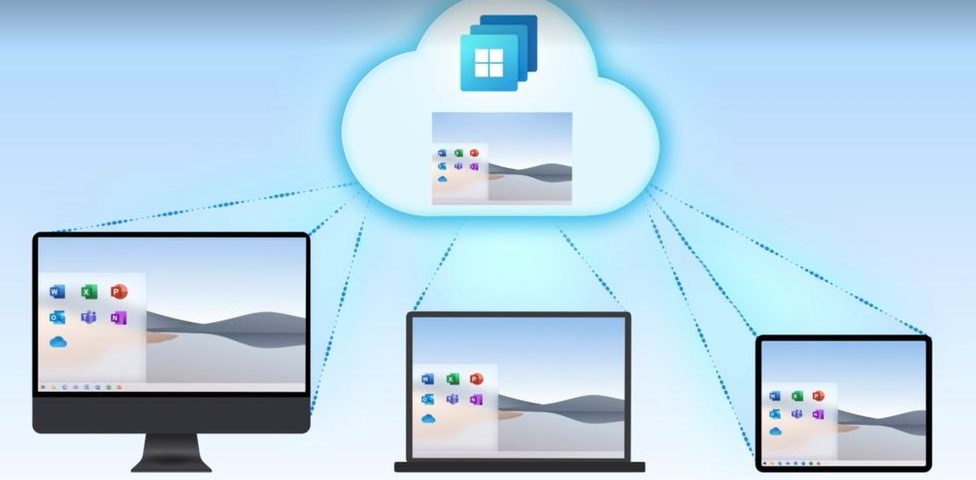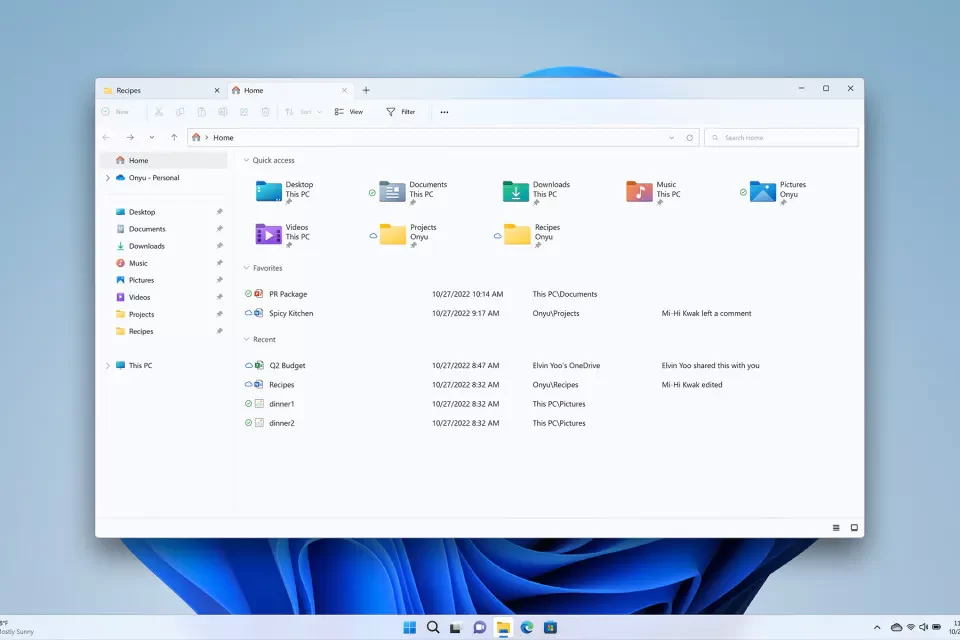Microsoft is putting Windows in the cloud. Windows 365 is a new service that will let businesses access Cloud PCs from anywhere, streaming a version of Windows 10 or Windows 11 in a web browser. While virtualization and remote access to PCs has existed for more than a decade, Microsoft is betting on Windows 365 to offer Cloud PCs to businesses just as they shift toward a mix of office and remote work.
Windows 365 will work on any modern web browser or through Microsoft’s Remote Desktop app, allowing users to access their Cloud PC from a variety of devices. “Windows 365 provides an instant-on boot experience,” according to Wangui McKelvey, a general manager for Microsoft 365. This instant access lets workers stream their Windows session with all of their same apps, tools, data, and settings across Macs, iPads, Linux machines, and Android devices. “You can pick up right where you left off, because the state of your Cloud PC remains the same, even when you switch devices,” explains McKelvey.
:no_upscale()/cdn.vox-cdn.com/uploads/chorus_asset/file/22716693/windows365web.jpg)
Windows 365 will only be available for businesses when it launches on August 2nd, with a per-user monthly subscription cost. Microsoft is not detailing exact pricing details until the service launches next month, but Windows 365 is designed for one-person businesses all the way up to enterprises with thousands of employees.
There will be two editions of Windows 365: Business and Enterprise. Both are powered by Azure Virtual Desktop, and individual Cloud PCs can be configured with a single CPU, 2GB of RAM, and 64GB of storage at the low-end, all the way up to eight CPUs, 32GB of RAM, and 512GB of storage. Microsoft is offering 12 different configurations for both Windows 365 Business and Enterprise, and businesses will be able to scale processing power so there will be lots of options to choose from.
Technically, Microsoft offering Windows in the cloud isn’t much different to the myriad of choices that businesses could already opt for with virtualization right now. Microsoft has already offered similar technology with Azure Virtual Desktop, and Citrix has been offering cloud-hosted desktop PCs for years. Where Microsoft is trying to differentiate is in both ease of use and management. “Windows 365 is really going to make a huge difference for organizations that wanted to try virtualization for various reasons but could not — maybe it was too costly, too complex or they didn’t have the expertise in house to do it,” says McKelvey.
:no_upscale()/cdn.vox-cdn.com/uploads/chorus_asset/file/22716703/windows365management.png)
Businesses will be able to create Cloud PCs within minutes and assign them to employees, avoiding the need for dedicated physical hardware. That could be appealing for many businesses hiring remote workers or even temporary contract staff that need to securely access a corporate network. As your entire Windows PC is in the cloud, employees don’t need to navigate VPNs or worry about security on personal devices.
While Windows 365 seems perfectly timed for businesses looking to tackle the complexities of remote work, Microsoft has been working on the service for years. The operating systems group at Microsoft had been working on a project codenamed “Arcadia,” a service to stream video games from the cloud. Arcadia dates all the way back to Microsoft demonstrating Halo running on a Windows Phone in 2013. This early virtualization work eventually led to Windows 365 and a focus on making it consumer-friendly.
“When we built this team, we brought in a couple of leaders who had experience with virtualization, but for the most part we brought in people who had experience with Windows and experience with consumer experiences because that was the bar we wanted to set,” says Scott Manchester, director of program management for Windows 365.
:no_upscale()/cdn.vox-cdn.com/uploads/chorus_asset/file/22716695/windows365ui.jpg)
The pandemic accelerated work on Windows 365, and Microsoft’s broader focus on hybrid work. Microsoft has been steadily improving Microsoft Teams over the past year and laying out its vision for the future of meetings, remote work, and more.
While Windows 365 is only for businesses right now, it’s easy to imagine a future where Microsoft could offer more powerful PC computing to consumers directly in a browser. A startup called Mighty is offering a $30-a-month web browser that lives in the cloud, designed to offer a better web experience on older laptops and PCs. Windows 365 might just be the first significant step toward a future where you don’t need a dedicated Windows PC to use Windows.




